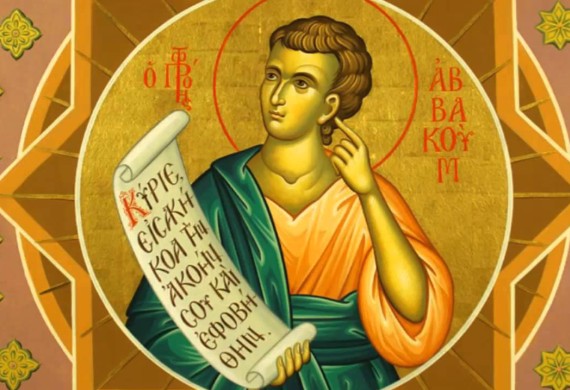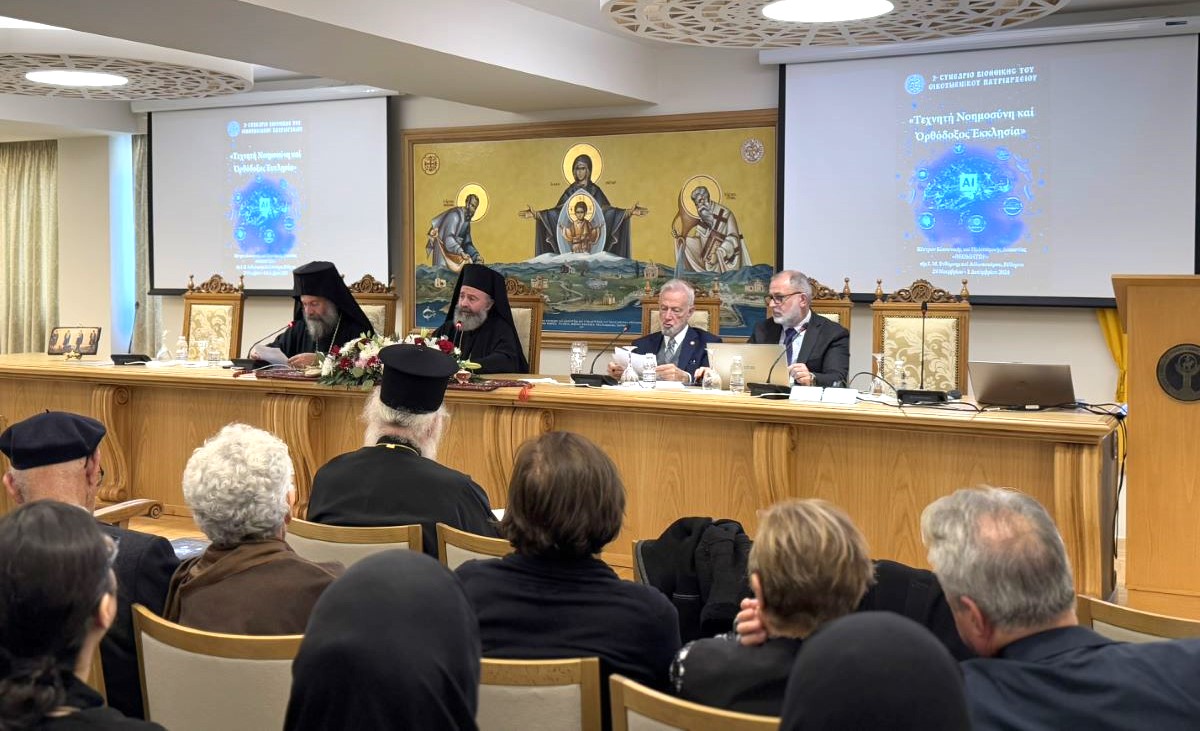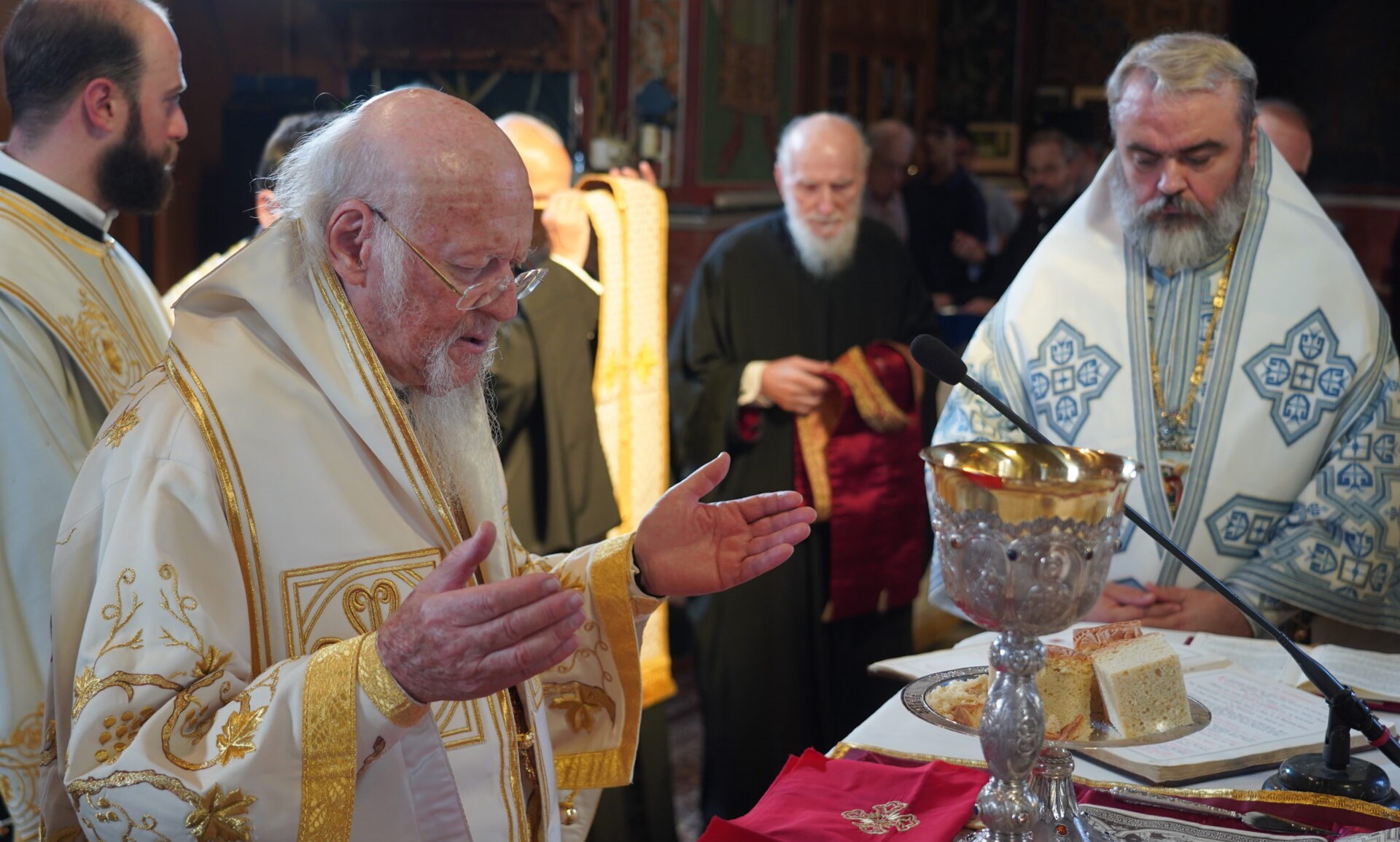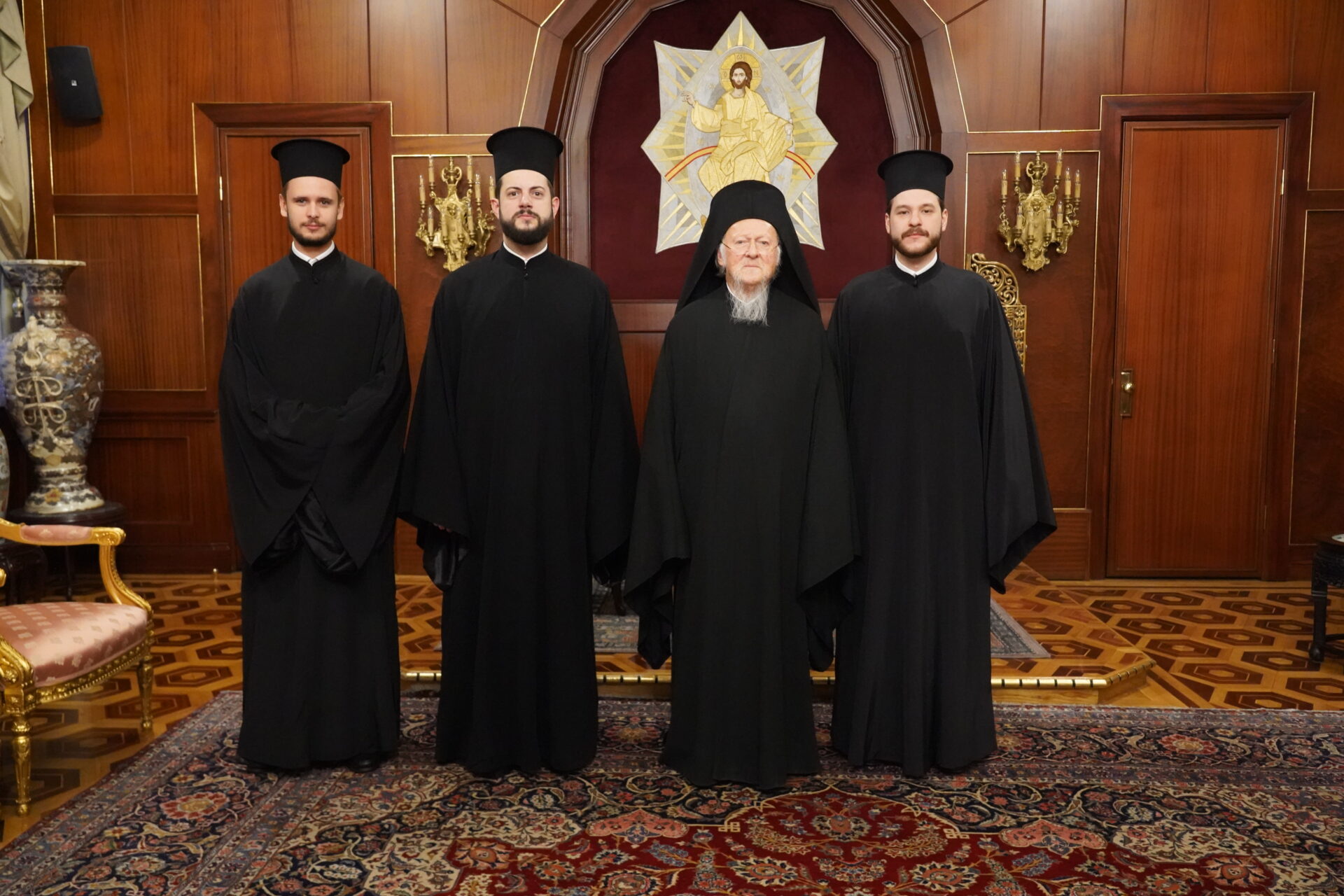Prophet Habakkuk (2 December)


The Holy Prophet Habakkuk, the eighth of the Twelve Minor Prophets, was descended from the Tribe of Simeon, and he prophesied around 650 B.C.
The Prophet Habakkuk foresaw the destruction of the Jerusalem Temple, the Babylonian Captivity and the later return of the captives to their native land. During the war with the Babylonians the prophet withdrew to Arabia, where the following miracle occurred. When he was bringing dinner to the reapers, he met an angel of the Lord, and instantly by the strength of his spirit he was transported to Babylon, where at the time the Prophet Daniel was languishing in prison. The food intended for the reapers assuaged the hunger of the exhausted Prophet Daniel (Dan. 14:33-37).
After the end of the war with the Babylonians, the Prophet Habakkuk returned to his homeland and died at a great old age. His relics were found at the time of Emperor Theodosius the Younger (408-450), together with the relics of the Prophet Micah (August 14).
The Fourth Ode of the Psalter (“O Lord, I have heard thy report, and was afraid…”) is based on Habakkuk 3:2-19.


This Prophet, whose name means “loving embrace,” is eighth in order of the minor Prophets. His homeland and tribe are not recorded in the Divine Scriptures; according to some, he was of the tribe of Symeon. He prophesied in the years of Joachim, who is also called Jechonias, before the Babylonian captivity of the Jewish People, which took place 599 years before Christ.
When Nabuchodonosor came to take the Israelites captive, Habakkuk fled to Ostrakine, and after Jerusalem was destroyed and the Chaldeans departed, Habakkuk returned and cultivated his field. Once he made some pottage and was about to take it to the reapers in the field. An Angel of the Lord appeared to him, and carried him with the pottage to Babylon to feed Daniel in the lions’ den, then brought him back to Judea (Bel and the Dragon, 33-39): His book of prophecy is divided into three chapters; the third chapter is also used as the Fourth Ode of the Psalter. His holy relics were found in Palestine during the reign of Emperor Theodosius the Great, through a revelation to Zebennus, Bishop of Eleutheropolis (Sozomen, Eccl. Hist., Book VII, 29).
Habakkuk was the son of Asaphat from the tribe of Simeon. He prophesied six hundred years before Christ, during the time of King Manasseh, and foretold the destruction of Jerusalem. When Nebuchadnezzar, King of Babylon, attacked Jerusalem, Habakkuk sought refuge in the land of the Ishmaelites. From there he returned to Judea, where he lived as a farmer.
One day he was carrying lunch to the workers in the fields, when suddenly an angel of the Lord appeared to him and said: Go carry the dinner that thou hast into Babylon unto Daniel, who is in the lion’s den (Daniel 14:34*). But Habakkuk responded: Lord, I never saw Babylon; neither do I know where the den is (Daniel 14:34-35). Then the angel took him by the hair and instantly brought him to Babylon, over an immense distance, to the lion’s den, where Daniel had been cast by King Cyrus as a punishment for not worshiping the idols. O Daniel, Daniel, cried Habakkuk, take the dinner which God hath sent thee (Daniel 14:37), and Daniel took it and ate. Then the angel of God again took Habakkuk and carried him back to his field in Judea. Habakkuk also prophesied the liberation of Jerusalem and the time of the coming of Christ. He entered into rest in ripe old age and was buried at Kela. His relics were discovered during the reign of Theodosius the Great.
Apolytikion of Prophet Habakkuk
Second Tone
As we celebrate the memory of Thy Prophet Habakkuk, O Lord, through him we beseech Thee to save our souls.
Kontakion of Prophet Habakkuk
Fourth Tone
Thou plainly beheldest the sacred disciples of Christ as horses that troubled the deep sea of ignorance, plunging error into the depths with their godly teachings, Habakkuk, God-proclaimer; hence, as a true Prophet, we acclaim thee, while asking that thou shouldst intercede that we find mercy with God the Lord.
Source: oca.org / goarch.org / westserbdio.org




